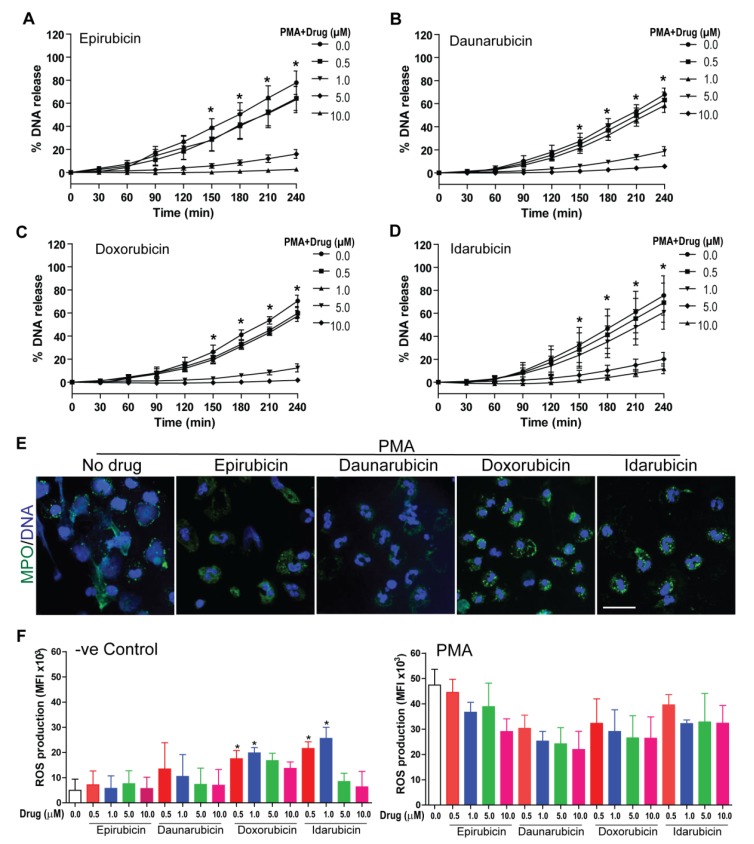Figure 4.
Anthracyclines reduce PMA induced, Nox-dependent NETosis in a dose-dependent manner without affecting reactive oxygen species (ROS) production. NETosis assays were performed but in the neutrophils activated with media PMA (25 nM) to induce Nox-dependent NETosis. The % DNA release for in each condition compared to Triton –X-100 samples (100% DNA release) was calculated. For (A) epirubicin, (B) daunorubicin, (C) doxorubicin, and (D) idarubicin, NETosis was suppressed in a dose-dependent manner (n = 3, * p < 0.05 between 10.0, 5.0 and 0.0 μM dosage with PMA; Two-way ANOVA with Bonferroni’s multiple comparison post-test). (E) Confocal microscopy of neutrophils was also performed on 5 μM dosage of each anthracycline drugs. Neutrophils were stained for DNA (blue) and MPO (green); colocalization of these stains shows NETs being released in samples without anthracyclines. With anthracyclines present, the neutrophils are more condensed (n = 3; scale bar, 20 μm). (F) Neutrophils were loaded with cytosolic ROS indicator DHR123 dye and pre-incubated with epirubicin, daunorubicin, doxorubicin, or idarubicin (0.0, 0.5, 1.0, 5.0, and 10.0 μM) for 1 h. They were then activated with media only (-ve control), or PMA (25 nM). Fluorescence readings (a proxy for ROS production) were taken every 10 min for 30 min. In the media only (-ve control), little ROS was produced. Low-dose doxorubicin and idarubicin increased ROS production. While in the PMA conditions; a substantial amount of ROS was produced. The presence of anthracyclines did not substantially affect ROS production (n = 3, * p < 0.05; One-way ANOVA with Tukey’s post-test compared to no drug control).

